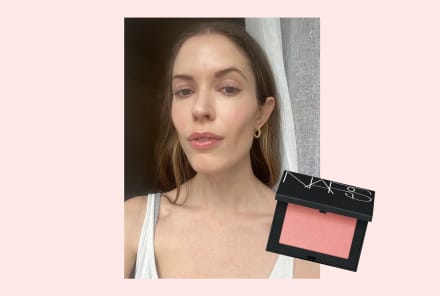Advertisement

For more than 25 years, I have faithfully written Morning Pages—three pages of longhand stream of consciousness that serves to unlock my creativity, guiding me a page at a time into my future. The pages, I often say, are like lanterns—illuminating the path ahead. I write them daily, aware that skipping them leads back to blocks. The faithful practice of pages leads to freedom. They bring ease and inspiration to my life.
1. The first thing I've learned is that persistence pays off.
Doing the pages day in and day out, even when they seem dull, boring, or difficult, eventually leads to breakthroughs. Because they can be about anything, pages are like taking a whisk broom to the corners of our consciousness.
2. The second thing I've learned is that you don't need to be in the mood to write.
Any mood is a good mood to write from. Very often, pages that begin in crankiness end in jubilation. The pages themselves are mood altering, moving us from the negative to the positive.
3. The third thing I've learned is that our nasty inner critic can be ignored or evaded.
It is not a good reason to avoid the pages. Make no mistake: Our critic will weigh in with negative opinions. We learn to say, simply, "Thank you for sharing" and keep right on writing.
4. The fourth thing I've learned is that positive ideas emerge seemingly at random.
A simple phrase, seemingly of whimsy, may be the portal to a new piece of work. "Wouldn’t it be fun to try—" we write, and at first we think, "Oh, I couldn’t do that." But we realize, at the pages repeated urging, that we are, in fact, able to try a new direction.
5. The fifth thing I've learned is that the pages are a tough love friend.
They will nag repeatedly until we take action on an issue. Let us say we have an alcohol problem. The pages will say, "You were drunk last night." Then they will say, "You were drunk again last night." Then they will say, "Maybe you’ve got a little drinking problem." Finally they will ask, "What do you plan to do about it?"
6. The sixth thing that I've learned is that pages completed give us a feeling of self-esteem.
On days when we feel unable to accomplish anything positive, we can nonetheless say to ourselves, "At least I did my pages." These pages count on the positive side of our inner ledger.
7. The seventh thing I've learned is that no matter how scattered our pages may feel to us, they are still moving us forward.
Unlike journal writing, in which we set a topic and stick to it, pages skitter from topic to topic. It is as if we have ADD. Over time, the mere mentioning of a topic corners us into tackling it. Pages force us to move ahead, often in a direction that we at first dismiss as inconsequential only later to see its importance.
8. The eighth thing I've learned is that there's no such thing as something too petty to be mentioned in the pages.
While our critic may tell us that we are nitpicking, experience shows us that there is no such thing as too trivial a topic to bear mention. We cite something small only to have it later be revealed as something large.
9. The ninth thing that I've learned is that pages train us to take risks.
First of all, the risk of doing the pages themselves. Over time, the pages teach us to resist our resistance. What initially seems impossible becomes, at the pages’ urging, possible.
10. The tenth thing that I've learned is that pages always expand our creativity over time, making us far larger than we initially perceive.
All of us have a creative ceiling—an imagined limit that we dare not transgress. Pages teach us that our creative ceilings are frequently false. We discover ourselves to be far larger and more expansive than our pre-pages negativity would allow.
Feeling inspired? Check out this prompt on how journaling can change your life. If you're more of a visual person, try bullet journaling.
Watch Next
Enjoy some of our favorite clips from classes
Enjoy some of our favorite clips from classes
What Is Meditation?
Mindfulness/Spirituality | Light Watkins
Box Breathing
Mindfulness/Spirituality | Gwen Dittmar
What Breathwork Can Address
Mindfulness/Spirituality | Gwen Dittmar
The 8 Limbs of Yoga - What is Asana?
Yoga | Caley Alyssa
Two Standing Postures to Open Up Tight Hips
Yoga | Caley Alyssa
How Plants Can Optimize Athletic Performance
Nutrition | Rich Roll
What to Eat Before a Workout
Nutrition | Rich Roll
How Ayurveda Helps Us Navigate Modern Life
Nutrition | Sahara Rose
Messages About Love & Relationships
Love & Relationships | Esther Perel
Love Languages
Love & Relationships | Esther Perel


















